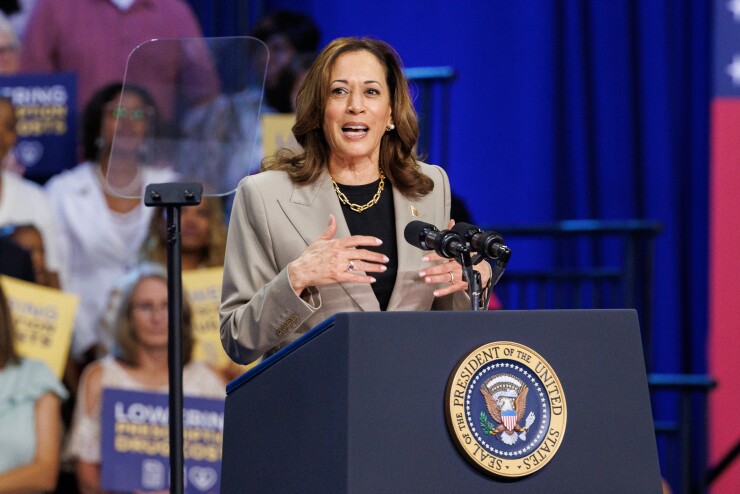
Kamala Harris' team has taken
It's a hopeful sign that Harris,
The digital assets community has spilled a lot of ink on the "crypto voter" in the run-up to the presidential election. To be sure, the
But that's not the only reason why Vice President Kamala Harris should support the bipartisan effort to regulate crypto.
Crypto policy plays into a central theme of Harris' progressive ideology: making financial services more accessible and inclusive while ensuring that consumers are protected.
Harris' ascension as the presumptive nominee has come as a relief to many pro-crypto Democrats. As crypto advocate Mark Cuban recently
And when
Serving more than two decades in public office, Harris' political career has been undeniably pro consumer and pro innovation. This bodes well for the future of crypto legislation in a Harris administration.
Jake Donoghue, author of the book "Crypto Confidential," shares some of the worst practices he saw as a founder of a cryptocurrency company.
As the attorney general of California, Harris prioritized protecting consumers from unfair business practices in the financial sector, securing
Crypto's current state of regulatory uncertainty means that investors have little protection from bad actors. That's why crypto companies have been among the loudest voices calling for clear rules of the road — and strong penalties for those who flout the rules. Harris' strong record on financial crime makes her the perfect ally for comprehensive crypto regulation.
Harris has also championed financial inclusion, which is one of crypto's potential biggest
Many Americans from underserved communities are already finding value in crypto, with
But before crypto legislation reaches the president's desk, it will first need to pass a closely divided Congress. Crypto legislation will continue to be a bipartisan effort — as it was when the House passed the Financial Innovation and Technology for the 21st Century Act, outlining a regulatory framework for crypto, with overwhelming support from both sides of the aisle. This won't faze Harris, who has "never hesitated to reach across the aisle to try and find some common solutions," according to her vice-presidential pick Tim Walz.
Crypto might be a pocketbook issue for some this election, but it's a critical policy opportunity for Kamala Harris when it comes to equity, financial access and consumer safeguards. By supporting bipartisan crypto legislation, Harris is positioned to lead a legacy-defining movement to protect consumers while increasing access to new financial tools.






